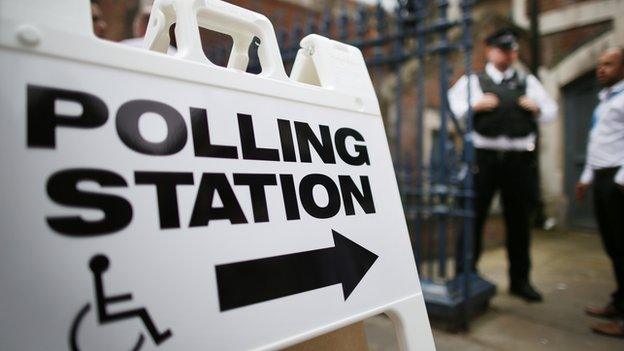Suffragettes needed? The women still struggling to vote
- Published
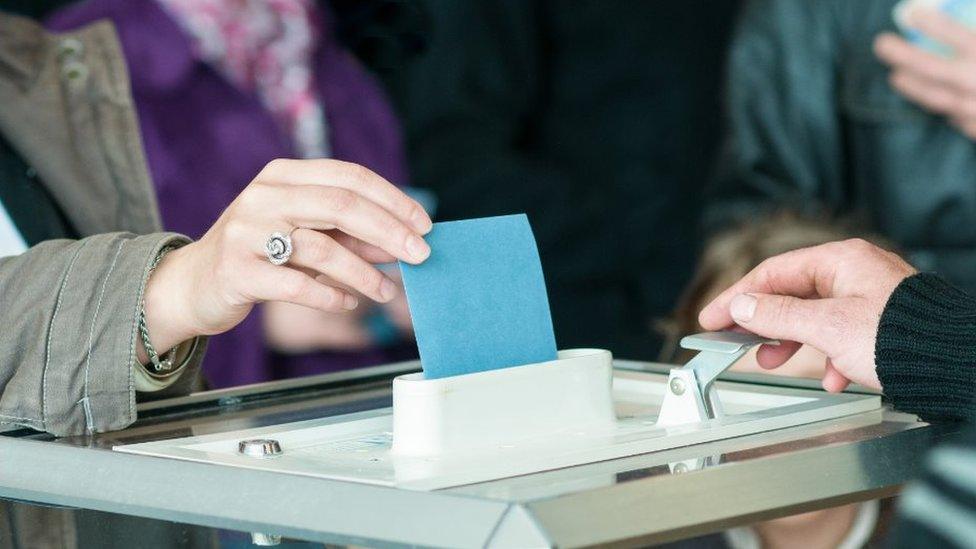
Frustrating. That's how some women describe accessing the vote, 100 years after the law changed.
Despite having a legal right to vote, some are still unable to cast a ballot at election time - or at least not in secret.
The government has put systems in place to help, but many people say these are often cumbersome and leave people reliant on family or friends.
'Dark ages'
"There is no autonomy," Ruksana Khanum, a law graduate who is partially-sighted, says.
Blind and partially-sighted people are provided with a tactile overlay for their ballot paper, but this only indicates numbers down the left-hand side and where the boxes are to cross. No names or parties are rendered in braille.
Ruksana says this leaves her reliant on a family member or friend to read out the ballot paper for her and then, as the overlay has a tendency to slip, to check that she has actually crossed the intended box.
As the youth forum advisor for the Royal Society for Blind Children, she is campaigning for a more accessible ballot paper.
"Frustration is pervasive," she adds. With technology "we can do things - but with this fundamental right, we are stuck in the dark ages".
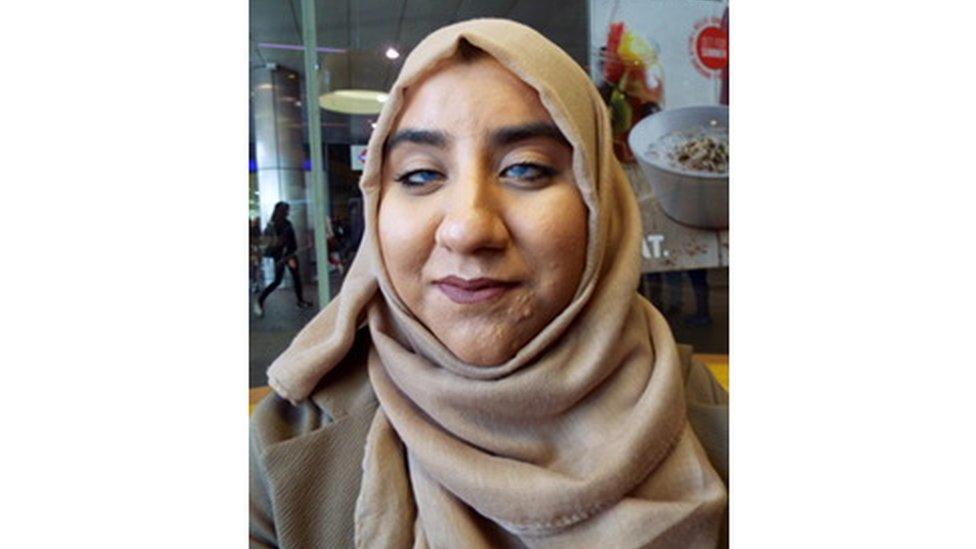
Ruksana Khanum campaigns for better access to voting for blind and partially-sighted people
Despite the Electoral Commission's directions to local authorities, external, advising them to ensure polling stations do not disadvantage disabled people, a 2010 survey by the disability charity Scope , externalfound two-thirds of them had access issues.
From simple problems such as steps and tables being too high - creating barriers for wheelchair users - to difficulties arranging proxy votes for people who cannot use a pen, disabled women and men are finding themselves struggling to access the democratic process.
Scope's head of policy, James Taylor, said he had heard of disabled people being turned away from polling stations.
"This should not be happening and councils must work to make all necessary changes. If we want everyday equality, then an equal share in our democracy is one of the fundamental places we need to start," he added.
Complicated processes
Before the last election, social media was awash with pleas for people to register to vote. Many emphasised how quick and easy it was to do; simply fill out a very short online form and you were good to go.
But for homeless women, including some of the 60,000 living in temporary accommodation, this simple-sounding task is almost impossible.
People who cannot provide a permanent address cannot use the standard online form but must instead print a different one and return it - by post or by hand - to a local electoral office.
The resources needed to do this (access to the internet, a printer etc) are hard to come by for these women.
Combined with a general lack of knowledge about the possibility of registering without an address, this means that although a system exists to allow homeless women to vote, many remain unregistered and unheard.
The same appears to be true for survivors of domestic violence - a system is in place, but it is complicated and difficult to navigate.
For many abuse survivors, registering to vote in the regular way is dangerous. Being registered means their names and addresses would appear on the public electoral roll, allowing perpetrators to find out exactly where they live.
Rights 'forfeited'
One survivor of domestic violence explained the lengths she went to to keep her address secret. "I even removed the house numbers from the front door in case he came looking," she said of her abuser.
Describing her time in a safe house, she says: "I was unaware at the time that not registering would adversely affect my credit rating for a prolonged time and, of course, I forfeited my right to vote."
She says that women need protection so they can rebuild their lives, including regaining their democratic voice.
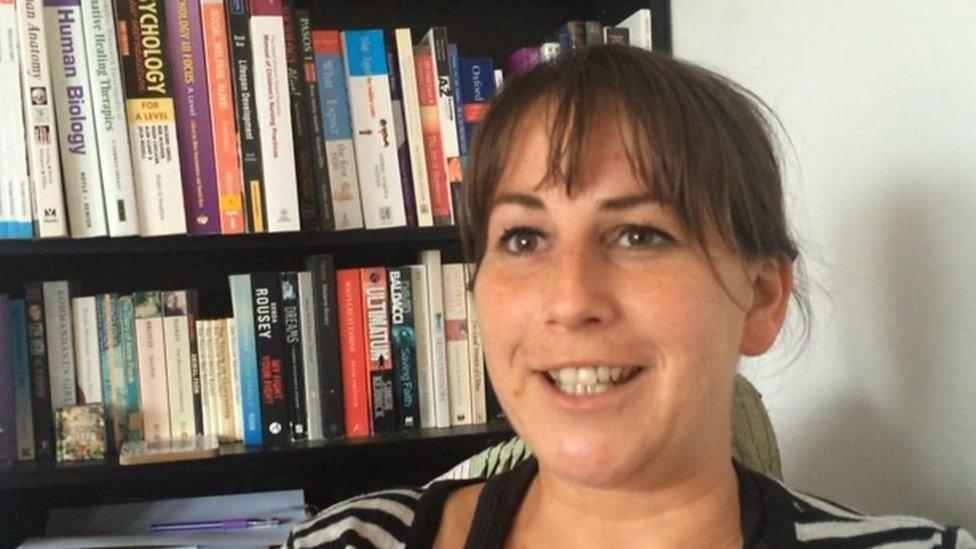
Mehala Osborne survived abuse and launched the campaign to have the law changed to allow anonymous registration
Currently, there is a system in place which allows survivors to register anonymously, so long as they can provide documentation (almost always a court order) proving that regular registration would compromise their safety.
The issue, according to the charity Women's Aid, is that many survivors do not have these documents; they have not been through a legal process.
Nor can they easily get them. According to Women's Aid, letters of evidence "can only be signed by very senior figures in specific agencies, such as the director general of the Serious Organised Crime Agency".
The charity is calling for the bar for eligible evidence to be lowered, so that refuge workers and health professionals can attest to a woman's status.
The charity's chief executive, Katie Ghose, said that "while 2018 is a time for us to celebrate the long hard battle our sisters fought to secure suffrage... we must remember that some women continue to be silenced".
She emphasised that anonymity "is a matter of life and death" and that "women are often on the run for the rest of their lives". The charity is therefore also calling for anonymous registration to be valid indefinitely.
"We urge the government to mark this centenary by sending out a clear message to all survivors of domestic abuse: that their voices matter, and their right to vote will never be taken away."
- Published3 March 2017
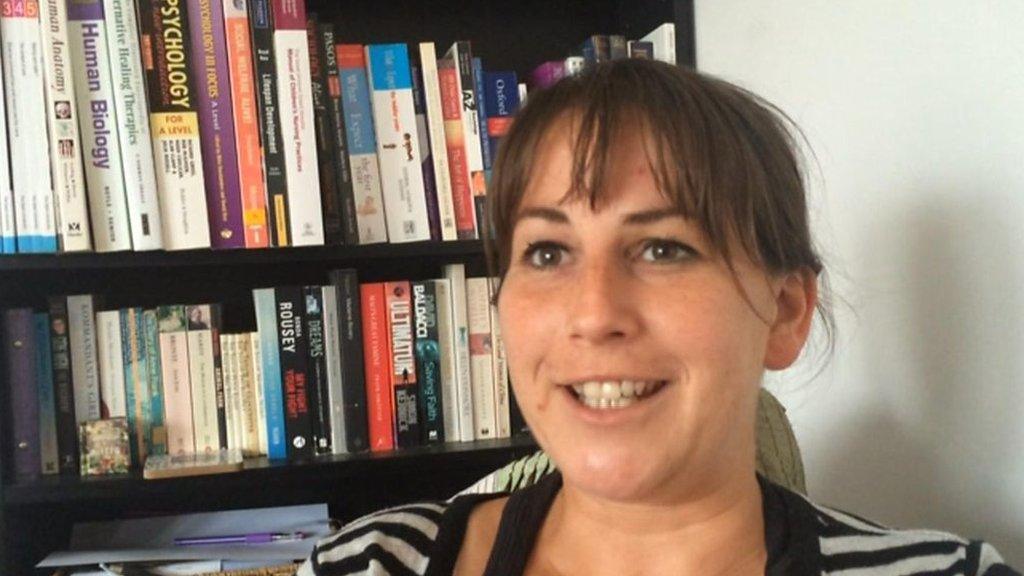
- Published28 March 2015
